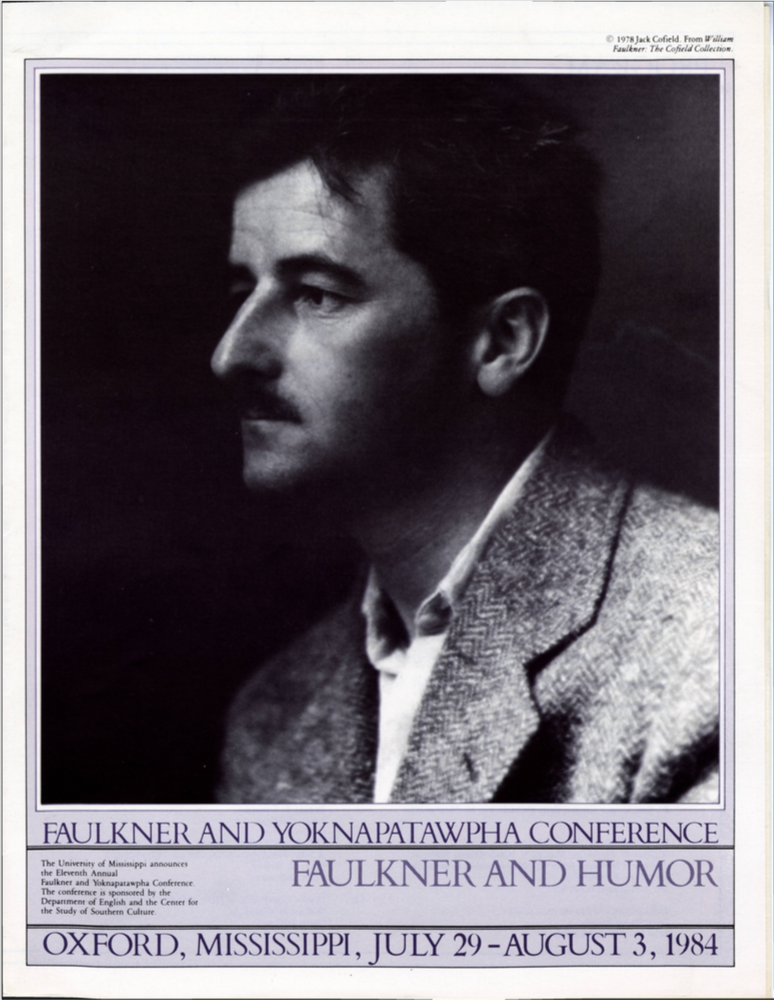
Twain and Faulkner: Miscegenation and the Comic Muse
Location
Ole Miss Union Ballroom
Start Date
2-8-1984 9:00 AM
Description
The tragic consequences of sexual relations across the color-line have been a staple of Southern fiction since the Civil War. Miscegenation becomes an emblem of racial exploitation and injustice in the broadest sense. The haunting figure of the wronged mulatto becomes the physical realization of the white man's sins come home to roost. Twain attempts to exorcise this demon in Pudd'nhead Wilson, by subjecting the tragic "myth" of miscegenation to bitter farce. A glance at a later treatment of this subject by Twain suggests that he was unsuccessful in his attempt to laugh away his region's collective guilt. In Absalom, Absalom!, Faulkner confronted the spectre of miscegenation at its most nightmarish level, and thus "earned" the ability to explore its comic implications in later works. A look at how these two Southerners came to handle the most potent fictional concern of their tradition not only offers us new insight into their radically different imaginations; it also suggests something about the redemptive nature of the comic muse. Laughter can indeed signal a transcendent vision in which hope emerges from despair, but the transcendence is never easy. Twain's sense of humor deserted him when he needed it most, whereas the comic muse took up a profitable cohabitation with Faulkner.
Relational Format
Conference Proceeding
Recommended Citation
Clark, William Bedford, "Twain and Faulkner: Miscegenation and the Comic Muse" (1984). Faulkner and Yoknapatawpha Conference. 25.
https://egrove.olemiss.edu/fy/1984/schedule/25
Twain and Faulkner: Miscegenation and the Comic Muse
Ole Miss Union Ballroom
The tragic consequences of sexual relations across the color-line have been a staple of Southern fiction since the Civil War. Miscegenation becomes an emblem of racial exploitation and injustice in the broadest sense. The haunting figure of the wronged mulatto becomes the physical realization of the white man's sins come home to roost. Twain attempts to exorcise this demon in Pudd'nhead Wilson, by subjecting the tragic "myth" of miscegenation to bitter farce. A glance at a later treatment of this subject by Twain suggests that he was unsuccessful in his attempt to laugh away his region's collective guilt. In Absalom, Absalom!, Faulkner confronted the spectre of miscegenation at its most nightmarish level, and thus "earned" the ability to explore its comic implications in later works. A look at how these two Southerners came to handle the most potent fictional concern of their tradition not only offers us new insight into their radically different imaginations; it also suggests something about the redemptive nature of the comic muse. Laughter can indeed signal a transcendent vision in which hope emerges from despair, but the transcendence is never easy. Twain's sense of humor deserted him when he needed it most, whereas the comic muse took up a profitable cohabitation with Faulkner.

